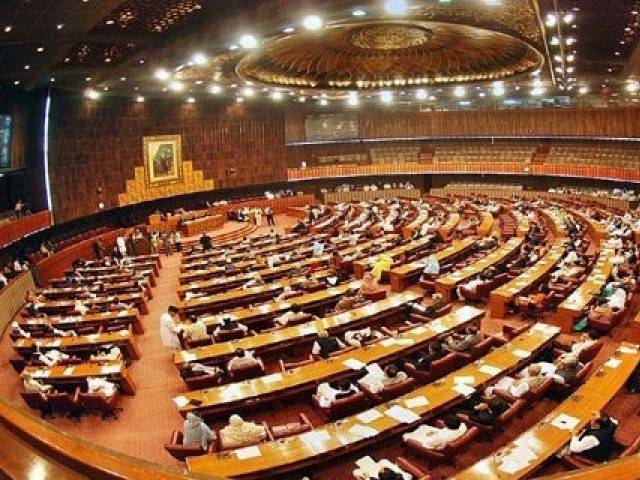The 21st century has proven deadly for democracy, mainly because of a lack of ideology. In the earlier days there were ideologues on all sides who maintained their political leanings. Compromise or ‘Muk Muka’ was unheard of, Ghaffar Khan’s Red Shirts were left of center while the Muslim League was a centrist party and with the religious right that always looked backwards. Those who jumped from their party in search of greener pastures, were looked down upon.
My father joined the Muslim Students Federation in 1935, followed by All India Muslim League and in his own words ‘those who compromise on political ideology deserve to be killed’. As a Muslim League child we were exposed to anti Red Shirts feeling but my father always praised the steadfastness of their beliefs. Compromise was unknown to them. As a student leader when I had the chance of meeting Wali Khan, I was quite impressed by his struggle for democracy. Then I had the opportunity to travel with their intellectual stalwart Comrade Ajmal Khattak who was on his way to New York in the nineties as emissary of Nawaz Sharif the Prime Minister (PM). I asked him a direct question, ‘how can a left of center Awami National Party (ANP) exist in coalition with a right of center PML (N)’?
He was taken aback, but then responded by saying that the PM has a business background and understood the economy of the times better than his party. Since then, ANP has not been the same party- it is neither here nor there.
Electables emerged on the scene after the first martial law in 1958. The script was prepared at the Ayub Khan led GHQ and was a combination of bullet plus manipulation instead of the ballot. Pakistan was created through political activism and it is destined to be a democratic state. Electability is anti-thesis of democracy, as it flouts the rules of the ballot. Electables have no beliefs or foundations. Recently Pervez Musharraf was asked about his former cabinet colleagues who are now a part of the present set up. His reply was straight and simple, that they will harm Nawaz Sharif in a very similar fashion as they are conspiring against him now.
Electables do not work for a common good and cannot deliver as such as they rely on forces not directly linked to the ballot. Misuse of authority and state apparatus is an integral part of their politics. They do not believe in the power of the masses or the sanctity of the electoral process. At best, they can be categorized as hired leaders, willing to take the side of anyone managing to take charge of the government.
Till the fall of the Soviet Union in the eighties, ideology played a dominant role in politics. Imperialism came to an end while capitalism tried to replace it. Welfare States emerged all over Europe as that was considered to be the only way to contain the spread of socialism. In the lure of efficiency and economic gains concepts like privatization, globalization and free market were introduced. The
The new millennium was poised to be a century of information and prosperity but it did not happen. Ideologues were cornered and a new breed of entrepreneurs emerged in violation of established norms of decency and conflict of interest.
In 1967, Zulfiqar Ali Bhutto (ZAB) launched his People’s Party that attracted the ideologues. Being a movement for change he rejected electables and introduced fresh untainted leadership. In the 1970 free and fair elections he won big in the Western wing (81/138). The same legislature then went on to frame the unanimous 1973 constitution. In the 1977 elections ZAB tried to revive the electables and attempted to corner the ideologues for which he had to pay a heavy price.
While ideologues seek change electables seek personal gains. Ideologues sacrifice whereas the electables inflict sufferings on the masses. Ideologues believe in nation building while electables push for its exploitation. It is quite interesting that the information age has been hijacked by disinformation campaigns. In the nineties the government of Nawaz Sharif worked on creating Vision 2010 while now it is working on 2025 version. Nothing changed on ground the entire campaign was limited to advertisements on the print and electronic media. The same approach has been adopted this time around. This is the approach of the electables to get elected at all costs without making a real difference on ground.
On Nov 15, 2007, Musharraf’s Plastic PM held his last cabinet meeting with his electable ministers. There was a photo session after which he shook hands saying, ‘till we meet again in this room’. Benazir’s assassination on December 27, 2007 changed the political scenario. PML(Q) and its electables were wiped out at the ballot box. After the fall of Pervez Musharraf his electables started looking for greener pastures. PML(N) remained very selective in accepting them back while PTI opened its gates. Even important positions were doled out to them against the wishes of the party ideologues who had contributed in building the movement. Like Jinnah, Imran has a vision for a democratic party and country. Electables within the party are the biggest obstacle in holding free and fair Inter Party Elections (IPEs).
For a democratic Pakistan, it is imperative to establish the rule of the ballot by side tracking the electables otherwise the future of democracy will be remain black. Without ideology there can be no politics, it is time to revive it for the well being of the nation.






